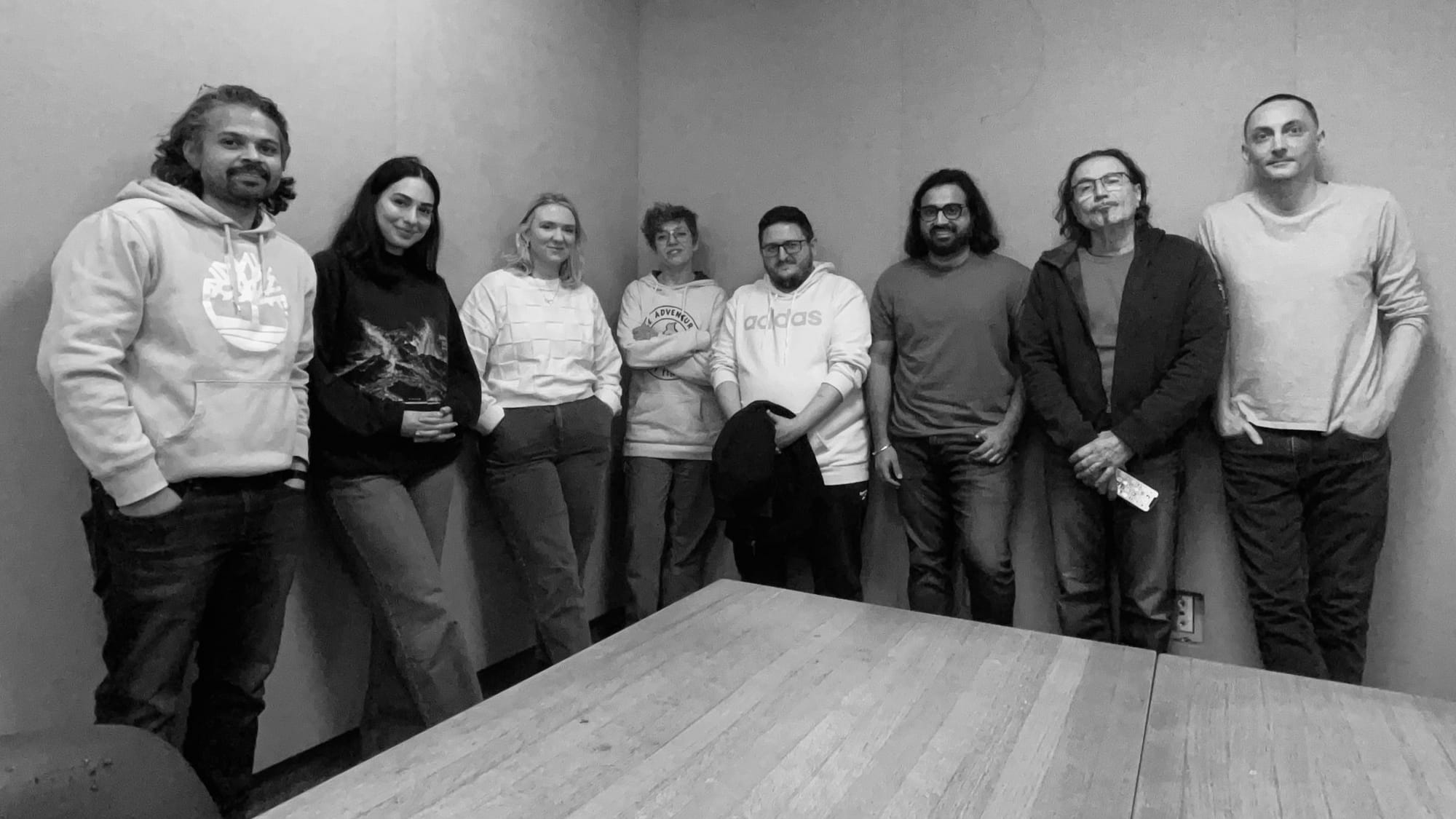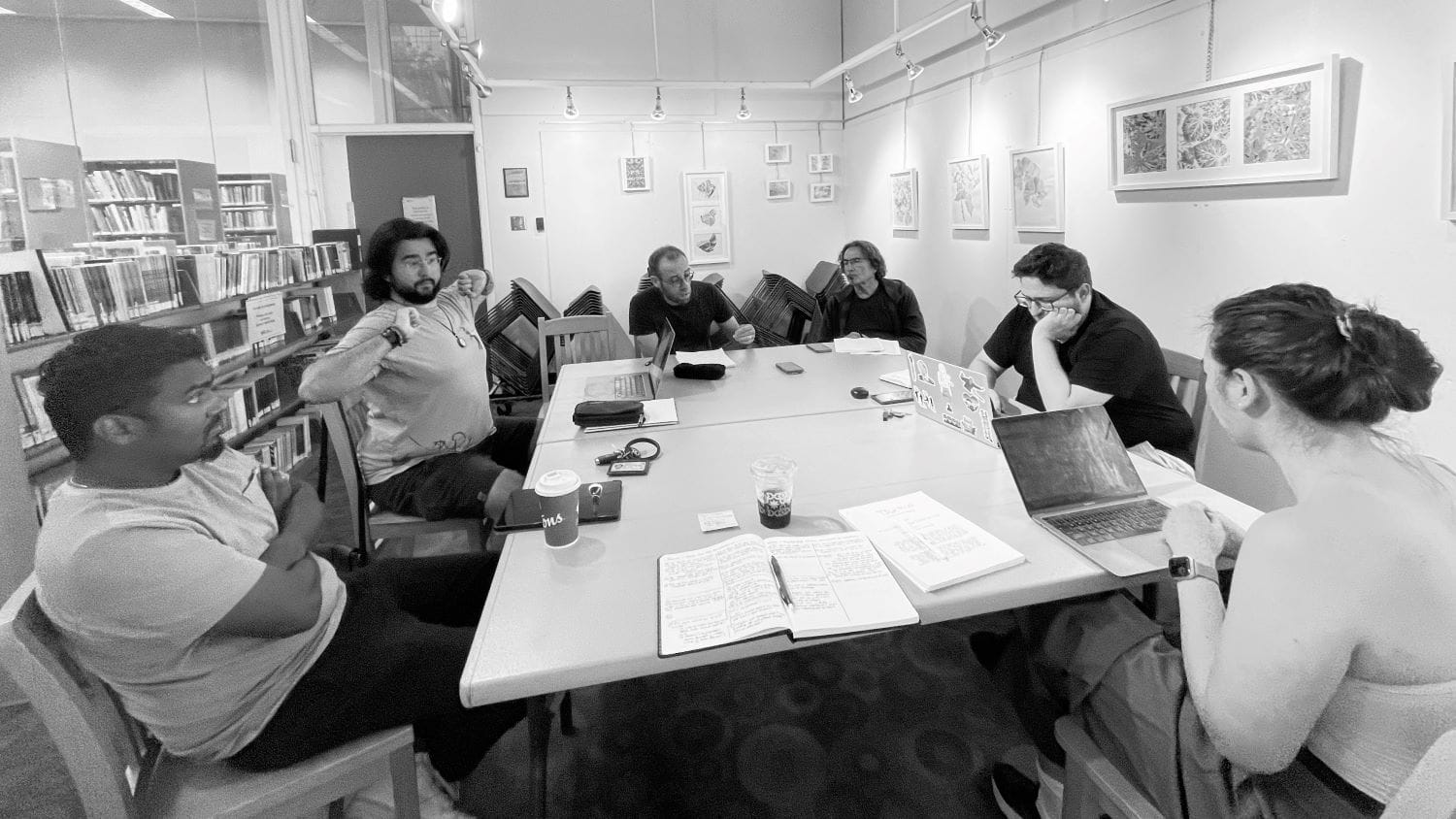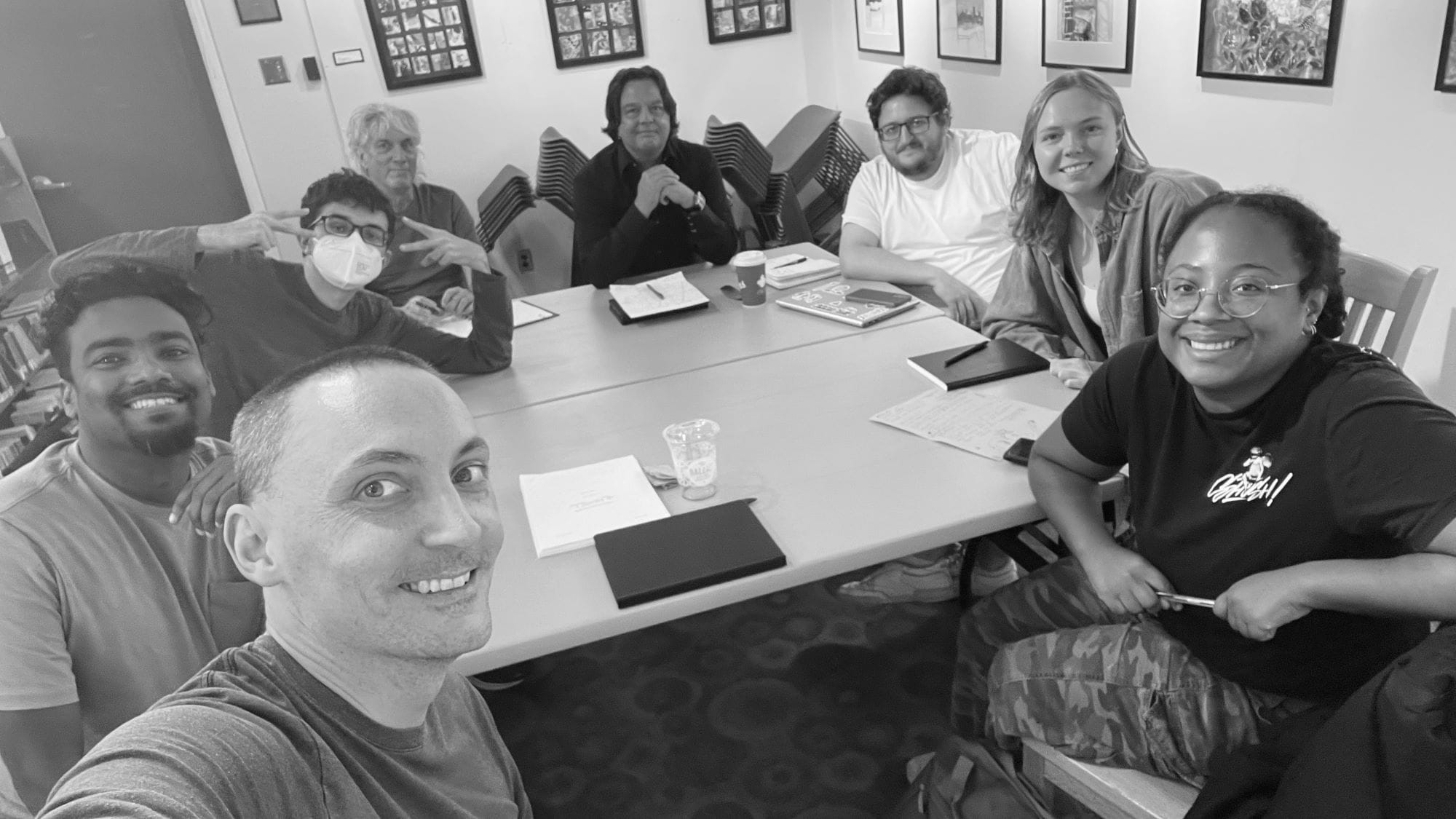Toronto Screenwriters Workshop
Welcome to the home of the Toronto Screenwriters Workshop!

We are a group of Toronto-based screenwriters who meet each month to workshop various types of screenwriting-related work, including short scripts, one- or two-page outlines, treatments, step outlines, feature-length screenplays, TV specs, TV pilots, series bibles and more.

The workshops are an opportunity for writers to exchange feedback, resources, and ideas, to make new contacts, find a writing partner or a story editor or just make some new screenwriting friends. Check out our FAQs below for more information and come out and join us!

Note: The SUBSCRIBE button you see floating around the website is for the CINEMORATA blog newsletter (not the workshops). If you want to join the workshop emailing list, scroll to the bottom for instructions.
How do the workshops work?
In short, writers who wish receive feedback on their screenplays (or other screenwriting-related material) submit their work prior to the workshop. Everyone who plans to attend the workshop session then pre-reads and prepares feedback on the submissions. We then meet in person to discuss and share our feedback with the writers.
Is this a screenwriting class?
No, it isn’t. There is no instructor, we are not offering lectures and we are not doing writing exercises. Instead, we meet to exchange peer-to-peer feedback (i.e. to workshop each other’s work).
I want to submit my script for the workshop! How can I do that?
A call for submissions will be emailed out a few weeks prior to each workshop. Participants interested in submitting their work to be workshopped should do so no later than five days prior to the workshop session.
Submissions will be accepted on a first-come, first-served basis up to a maximum of three (3) submissions per workshop. Only one submission per writer per session is permitted (see below for details on submission guidelines).
Following the submission deadline, an e-mail will be sent out to all participants including attachments of the work submitted to be reviewed prior to the workshop.
Note: In order to receive feedback on your submission you must be in attendance during the workshop session (see below for more on how that part works).
I don’t have a script. Can I still join?
Yes, you can. Participants who wish to give feedback, but don’t have a script, are still welcome to join the workshops.
Do I need to RSVP for the workshop? Or can I just show up?
An email will be sent out to participants prior to each workshop asking everyone to RSVP. Please let us know you are coming in advance, so we can plan for the number of people who will be there.
How many people can attend the workshop?
We don’t impose a hard limit on the number of people who can attend. That said, we may be limited by the size of the venue. Eight to ten people is usually a good size. Anything above that is probably unmanageable.
I’m coming to the workshop! Do I need to prepare anything?
If you are coming to the workshop, make sure you read each of the submissions and prepare some feedback for the writers prior to attending the workshop session. If you don’t read the submissions, you won’t be able to contribute to the discussion.
Where do I get the submissions (so I can read them before the workshop)?
The submissions will be sent out to participants via email prior to the workshop. You must RSVP in order to receive the submissions.
What is the format of the workshop sessions?
During the workshop, we will take turns giving feedback to each writer about their work. The writer receiving the feedback will then be given the opportunity to respond and ask questions. An open discussion usually follows.
Sessions will typically last no more than three hours in total and the time will be – insofar as is possible – divided up equally among the total number of submissions to be workshopped.
Note: If you have submitted work, you must attend the workshop session in person in order to receive your feedback.
What are the submission guidelines?
If you would like to submit your work to be workshopped, please ensure that it meets the following criteria. All submissions must:
1) be an original piece of work (i.e. you must be the writer);
2) be no more than 30 pages in length, title page excluded (see note below regarding longer work);
3) adhere to standard Hollywood screenplay format;
4) in the case of outlines, treatments, etc. be 12pt (preferably serif) font, double-spaced;
5) include your name and the title of the submission;
6) be submitted in PDF format; and,
7) be written in English.
Note: Partial extracts from longer works are permitted. If you are submitting an extract from a feature-length screenplay, it is strongly recommended that you submit either the complete first or third act or the first or second half of the second act of your screenplay (up to a maximum of 30 pages) along with a one-paragraph background summary or overview of the story up to that point.
In fairness to other participants, submissions which do not adhere to the above guidelines will not be accepted.
In addition, we strive to make our workshops a safe and inclusive environment for everyone. As such, while we welcome submissions which represent a wide variety of views and artistic intent, material which promotes racist, sexist, homophobic or otherwise hateful attitudes towards others will not be accepted.
Are there any guidelines for giving (or receiving) feedback?
While we do not impose any strict guidelines for giving (and receiving) feedback on submissions, writers will typically expect to receive feedback on aspects such as plot, character, story structure, theme, dialogue, and conflict, as well as the overall effect or impression of the work. Above all, feedback should be as constructive and helpful to the writer as possible.
In addition, while we encourage honesty in feedback (you aren’t helping anyone if you tell them something is great when it isn’t) this can sometimes be a brutal experience for the person receiving it. Hence, when giving feedback, please do so in a respectful manner. Insults or personal attacks against a writer (or against the person giving feedback) will not be tolerated.
Finally, for those receiving feedback, please remember that everyone is entitled to their opinion and while not everyone may get what you are trying to do, their opinion is just that – their opinion. You are free to take or it leave it.
I’m a big fan of Quentin Tarantino. Can we read and discuss Pulp Fiction during the next workshop?
Reading and discussing work by established writers is a great way to learn about screenwriting. However, one of our objectives in running the workshops is to motivate others to write (and improve their writing) by providing them with an audience for their work, as well as a safe environment in which to exchange constructive feedback. As such, we only workshop original work submitted by participants.
Who can join?
Workshop sessions are open to all. Beginners and veterans, amateur and professional screenwriters are welcome to join. Above all, we are looking for people who are committed to making a positive contribution to the group, who are respectful of other people’s work and opinions, who love film and screenwriting, and who are passionate about learning and improving their craft.
Note: If you are under the age of 18, you must be accompanied by a legal guardian.
Where do the workshops take place?
Workshops take place offline at publicly accessible venues located in or near downtown Toronto (Yorkville), such as public libraries, coworking spaces, etc. The exact location may change from workshop-to-workshop depending on availability.
Do I have to pay any money to come to the workshops?
There is a $20 per person fee to join the workshop. The money goes towards the cost of the venue rental. Any money we receive above-and-beyond that will be redirected back into the group in other ways (e.g. to purchase shared resources, host future workshops, etc.).
OK, I’m in. Who should I contact?
For more information or if you would like to join one of our workshops, please contact Michael Thede at michael[dot]thede[at]hotmail[dot]com.